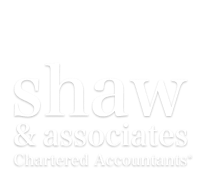New Trust Requirements for 2023
February 27th, 2024
Posted in: Tax

The Government of Canada has introduced new trust reporting requirements for the 2023 tax year. How might this affect you?
Per Investopedia "A trust is a “legal entity with separate and distinct rights, similar to a person or corporation. In a trust, a party known as a trustor gives another party, the trustee, the right to hold title to and manage property or assets for the benefit of a third party, the beneficiary.”
For taxation years ending after December 30, 2023, there are new rules for trusts in Canada. Trusts that previously did not need to file an annual T3 form with Canada Revenue Agency (CRA) may now need to do so.
Which Trusts Are Affected by This?
All trusts that are not exempt will need to file an annual T3. The following trusts are exempt:
“Certain types of trusts are excluded from these additional reporting requirements under new subsection 150(1.2), including a trust that:
Has been in existence for less than three months at the end of the year;
Holds only certain assets and those assets have a total fair market value that does not exceed $50,000 throughout the year;
Qualifies as a non-profit organization that is a club, society or association described in paragraph 149(1)(l) or a registered charity;
Has all of its units listed on a designated stock exchange;
Is a mutual fund trust or master trust or is a segregated fund;
Is a GRE;
Is a qualified disability trust;
Is an employee life and health trust; or
Is under or governed by a deferred profit sharing plan, employee profit sharing plan, first home savings account, pooled registered pension plan, registered disability savings plan, registered education savings plan, registered supplementary unemployment benefit plan, registered pension plan, registered retirement income fund or registered retirement savings plan.”
What Are the New Requirements?
The CRA is looking for more identity and residence information for the trustees, beneficiaries, settlors, and protectors of a trust.
Penalties for Not Filing
There will be penalties for not filing correctly for your trusts, so anyone responsible for the administration of a trust needs to get up to speed on these new requirements as soon as possible.
Shaw & Associates would love to sit down with you and discuss any current or future trust fund requirements you have.
Contact Shaw & Associates Chartered Accountants for accounting help you can count on. One complimentary meeting with us will put you and your business on a more profitable and positive path.

